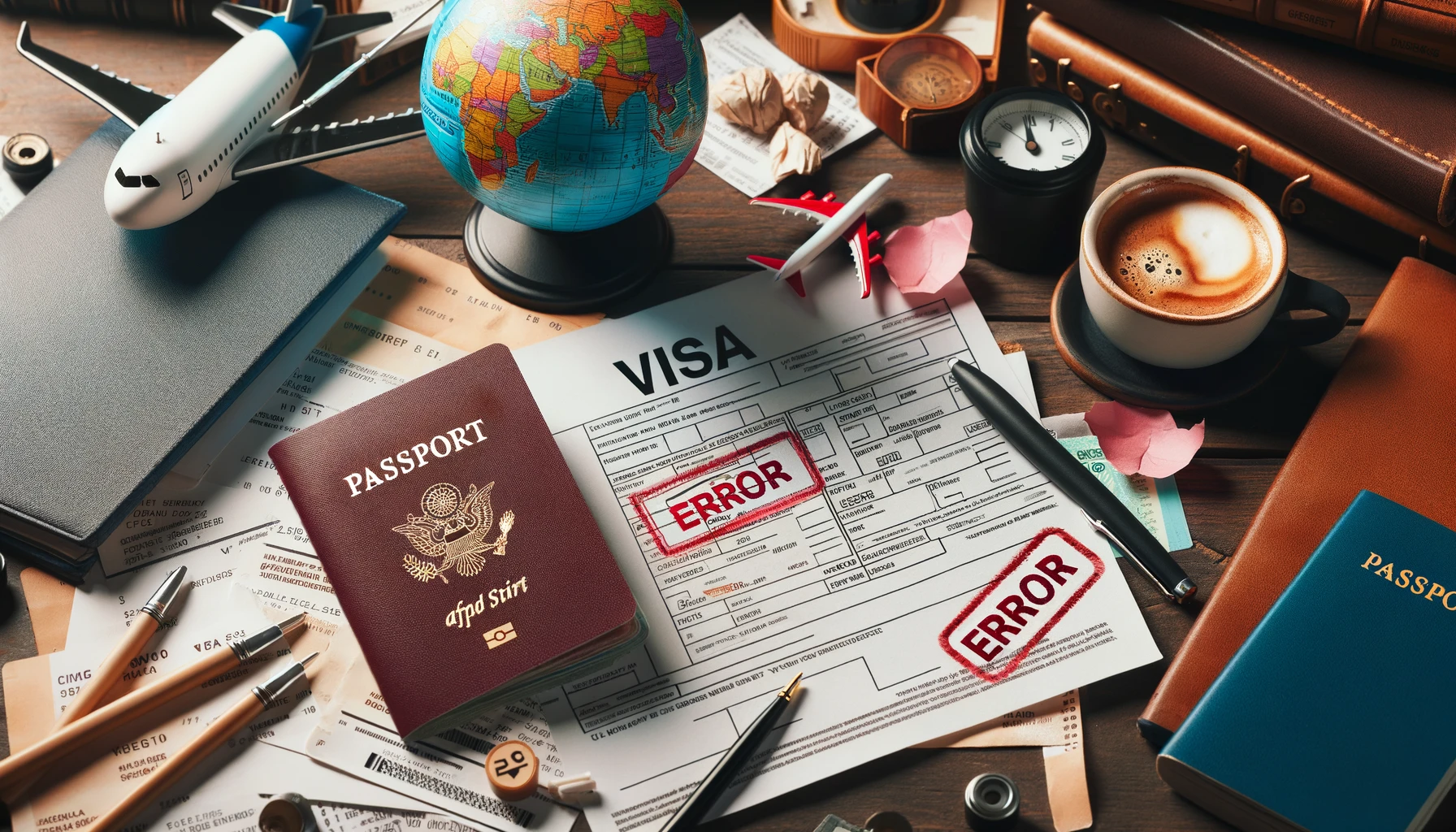Obtaining a visa for travel to another country is often a crucial step in planning any trip, whether for work, study, or leisure. However, navigating the visa application process can be fraught with challenges, and even minor mistakes can lead to denials or delays. In this article, we will explore some of the most common mistakes people make during the visa application process and provide valuable tips on how to avoid them, ensuring a smoother and more successful application experience.
Mistake #1: Providing Incomplete or Inaccurate Information
One of the primary reasons for visa denials is providing incomplete or inaccurate information on the application form. This can include failing to fill out all required fields, providing outdated or incorrect information, or omitting essential details altogether. Even minor errors can lead to application rejections, underscoring the importance of thoroughness and accuracy in completing the application.
To avoid this mistake, applicants should carefully review all instructions and requirements before filling out the application form. Take the time to ensure that all information provided is accurate, up-to-date, and complete. When in doubt, seek clarification from relevant authorities or consult official resources for guidance.
Mistake #2: Lack of Sufficient Supporting Documentation
Another common mistake is failing to provide sufficient supporting documentation with the visa application. This can include evidence of employment, financial documents, travel itineraries, or other relevant documents depending on the purpose of travel. Without adequate documentation, authorities may find it challenging to assess the applicant’s eligibility for the visa, potentially leading to denials.
To avoid this mistake, applicants should carefully review the list of required supporting documents provided by the visa issuing authority. Gather all necessary documents well in advance of the application submission and ensure they are accurate, up-to-date, and relevant to the visa category. If uncertain about document requirements, seek guidance from official sources or consult with legal professionals specializing in visa applications.
Mistake #3: Failure to Demonstrate Strong Ties to Home Country
When applying for a visa, it’s essential to demonstrate strong ties to one’s home country to assure authorities of the applicant’s intention to return after the trip. This can include proof of employment, property ownership, family ties, or other significant connections to the home country. Failing to provide adequate evidence of ties to the home country can raise doubts about the applicant’s intentions, potentially leading to visa denials.
To avoid this mistake, applicants should proactively provide compelling evidence of their ties to their home country with the visa application. This may include employment contracts, property deeds, financial statements, or letters of support from family members or employers. Be prepared to articulate how the trip fits into the applicant’s overall plans and assure authorities of their intent to return home after the visit.
Mistake #4: Criminal History or Immigration Violations Failure
To disclose past criminal history or immigration violations can significantly impact visa applications, leading to denials or even legal consequences. Even minor offenses or violations must be disclosed truthfully on the application form, as authorities routinely conduct background checks to verify applicants’ integrity. Failing to disclose such information can undermine the applicant’s credibility and trustworthiness, resulting in adverse outcomes.
To avoid this mistake, applicants must be transparent and honest about any past criminal history or immigration violations when completing the application form. Provide accurate and detailed information about the nature of the offense or violation, including dates, circumstances, and resolutions. Demonstrate remorse, rehabilitation efforts, and steps taken to comply with legal requirements, if applicable. Seeking legal advice or assistance may be advisable for complex cases or concerns about disclosure requirements.
Mistake #5: Inconsistent or Suspicious Responses
During the Interview, If required to attend an interview as part of the visa application process, applicants must prepare adequately and provide honest, consistent responses to interview questions. Inconsistent or suspicious responses can raise red flags and lead to further scrutiny or denial of the application. Authorities assess applicants’ credibility and intentions based on their demeanor, responses, and overall conduct during the interview.
To avoid this mistake, applicants should familiarize themselves with common interview questions and practice their responses in advance. Be honest, straightforward, and forthcoming in answering questions, providing relevant details without embellishment or evasion. Maintain a respectful and cooperative attitude throughout the interview, demonstrating sincerity and trustworthiness. Seeking guidance from experienced professionals or conducting mock interviews may help applicants prepare effectively and increase their chances of success.
Conclusion
Avoiding common mistakes in the visa application process is essential for a smooth and successful experience. By understanding potential pitfalls and taking proactive measures to address them, applicants can enhance their chances of approval and expedite the visa issuance process. Diligence, honesty, and thorough preparation are key to navigating the visa application process with confidence and securing approval for travel to the desired destination.

